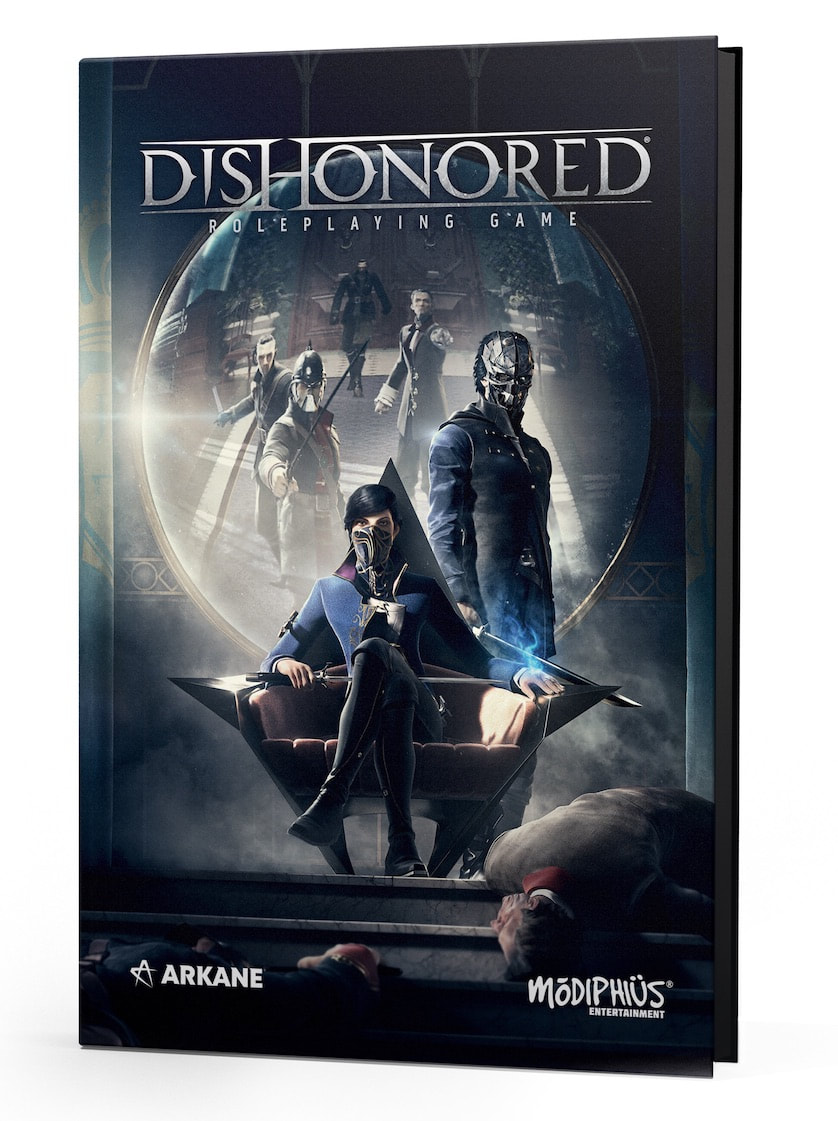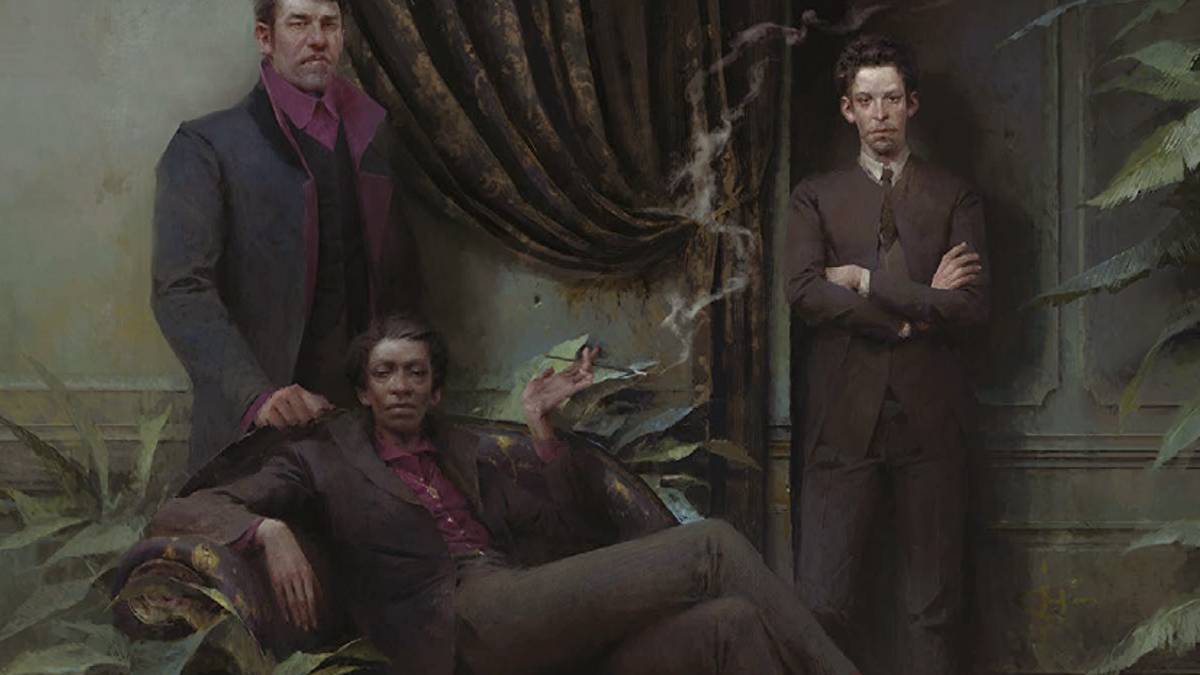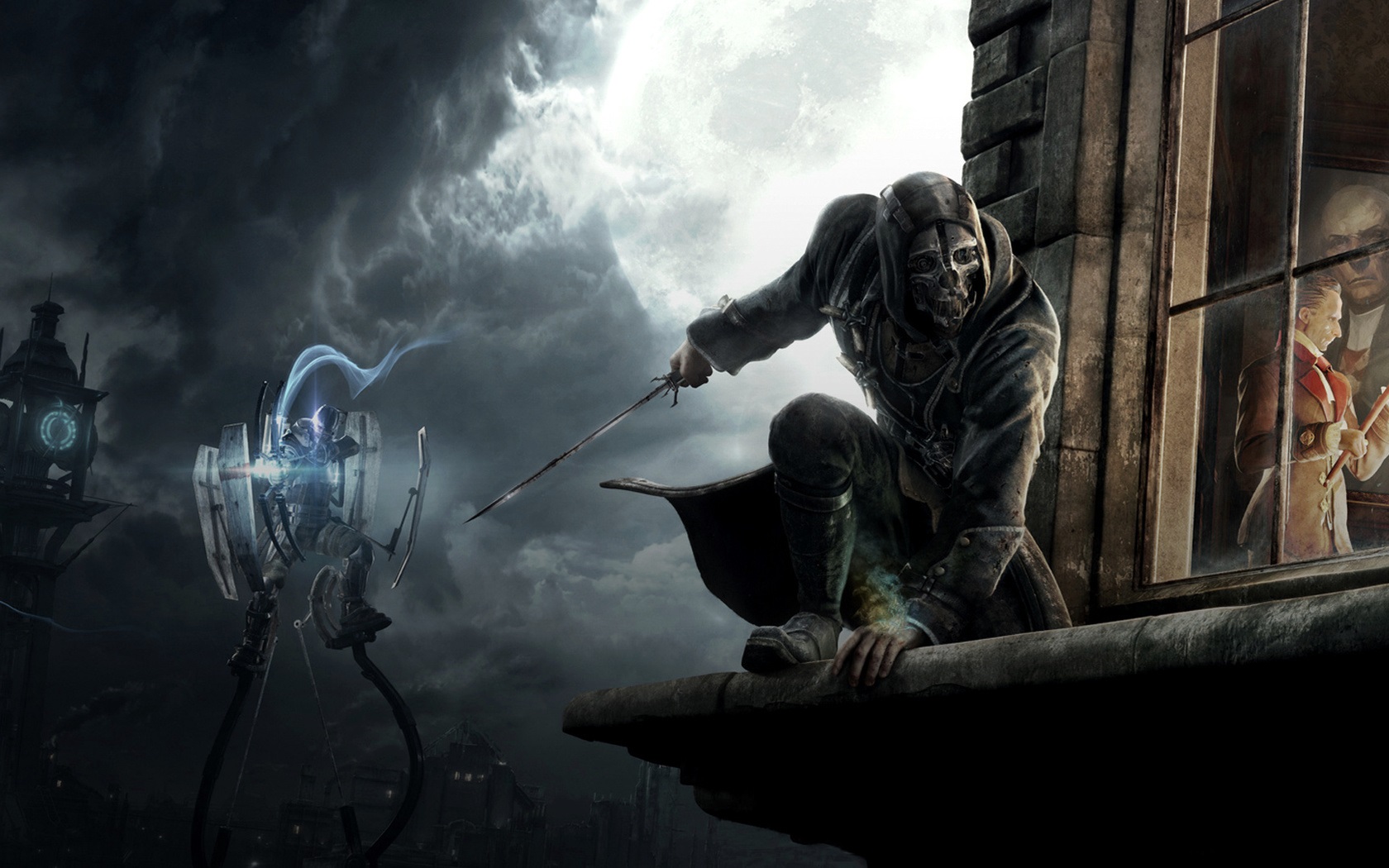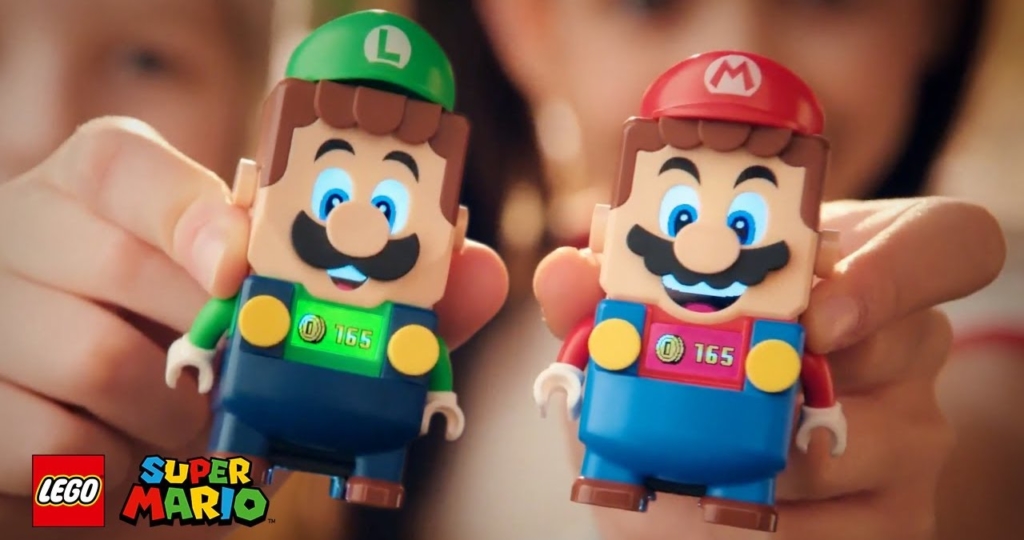RPG Spotlight: Dishonored
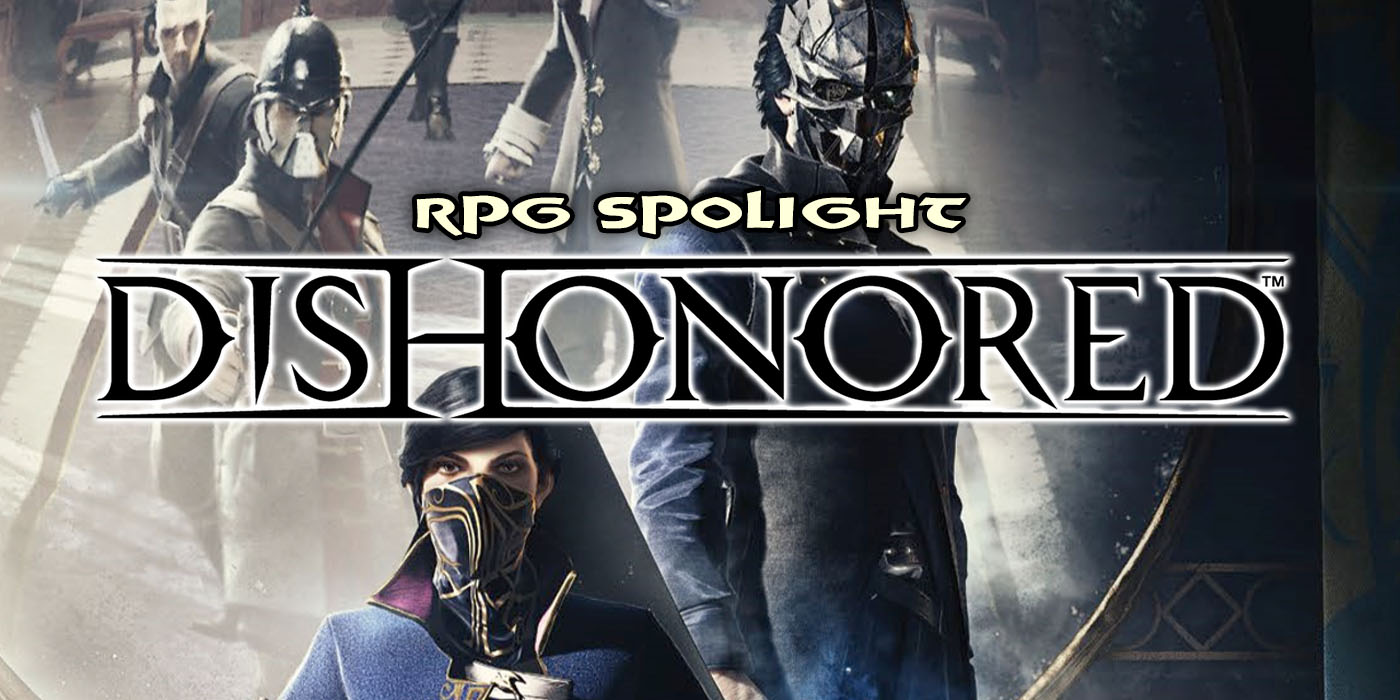
Combining a videogame known for its success and a rules system we’re already familiar with, the Dishonored RPG was designed to succeed.
2012’s Bethesda produced single-player video game, Dishonored, did well. Top four selling games across multiple formats and markets with almost universally glowing reviews, sort of well. Combining intrigue, magic, betrayal, and a little of that dark Victorian and steampunk aesthetic that was very popular in early 2010’s (and isn’t exactly unpopular even today), Dishonored became a game that even those of us who can’t be fairly described as gamers by any stretch have at least a passing familiarity with. So it was not surprising when Dishonored was adapted into a tabletop RPG format a few years later in 2020 and equally unsurprising when it popped up on quite a few “best of 2020” tabletop RPG lists. But what makes Dishonored work so well?
The industrial steampunk inspired setting of Dunwall is one that works equally well for videogames and tabletop RPGs. Visually, it’s interesting to wander through and explore, but at the RPG table, a city based loosely on 1800s London and Edinburgh is one we can easily imagine and the faux technology level is one we’re all fairly familiar with from other popular media. And that exact accessibility is something the Dishonored tabletop RPG tried to use to its advantage as much as possible.
The gamebook tirelessly describes the setting and fills the book with beautiful art in a way that leaves interesting Easter Eggs and tidbits for longtime fans of the franchise as well as basic information for anyone who may have picked up the system apropos of nothing and still wanted to jump into Dunwall for themselves. The people, world, politics and geography of this fictional setting are all described with the singular and key goal of immersing you in the world of Dishonored as much as possible.
The system is, at its core, a common one for Modiphius, mostly using the 2d20 rules utilized by other popular media inspired games such as Star Trek Adventures. Two d20s are rolled and players aim to roll below a given goal. But Dishonored is its own video game with its own mechanics and flavor, and Modipuhius tried to incorporate these into the tabletop RPG as much as possible as well. Chaos and chaotic behavior in players and their characters can be used by the GM in a way that makes things more difficult for that character down the road. In Dishonored actions have consequences, and while it’s always fun to play a roving band of murder nomads, this game wants you to think twice and consider what next week’s session will bring if you make bad decisions today.
Another aspect of Dishonored that the RPG didn’t overlook was the concept of outsiders and the pseudo-magic void powers featured in the game. Modiphius adds some of the more iconic powers fans may recognize from the game but attempts to underutilize them just a little. It’s a move that makes sense since these powers are supposed to be so rare, the game needed to toe the line between not allowing them to be overpowered but also playable and fun.
The Dishonored RPG met it’s summer 2020 release to find its way onto multiple “top game of the year” lists, combining a popular IP with a well-known system for a product that is recognizable enough for fans of the video game and accessible enough for new players to understand. But if you haven’t checked the Dishonored RPG for yourself yet, you can find more information on the Modiphius official website.
Have you played the Dishonored RPG? How do you think it compares to the videogame it was based on? What kind of character did you play? Let us know in the comments!
Happy Adventuring!

